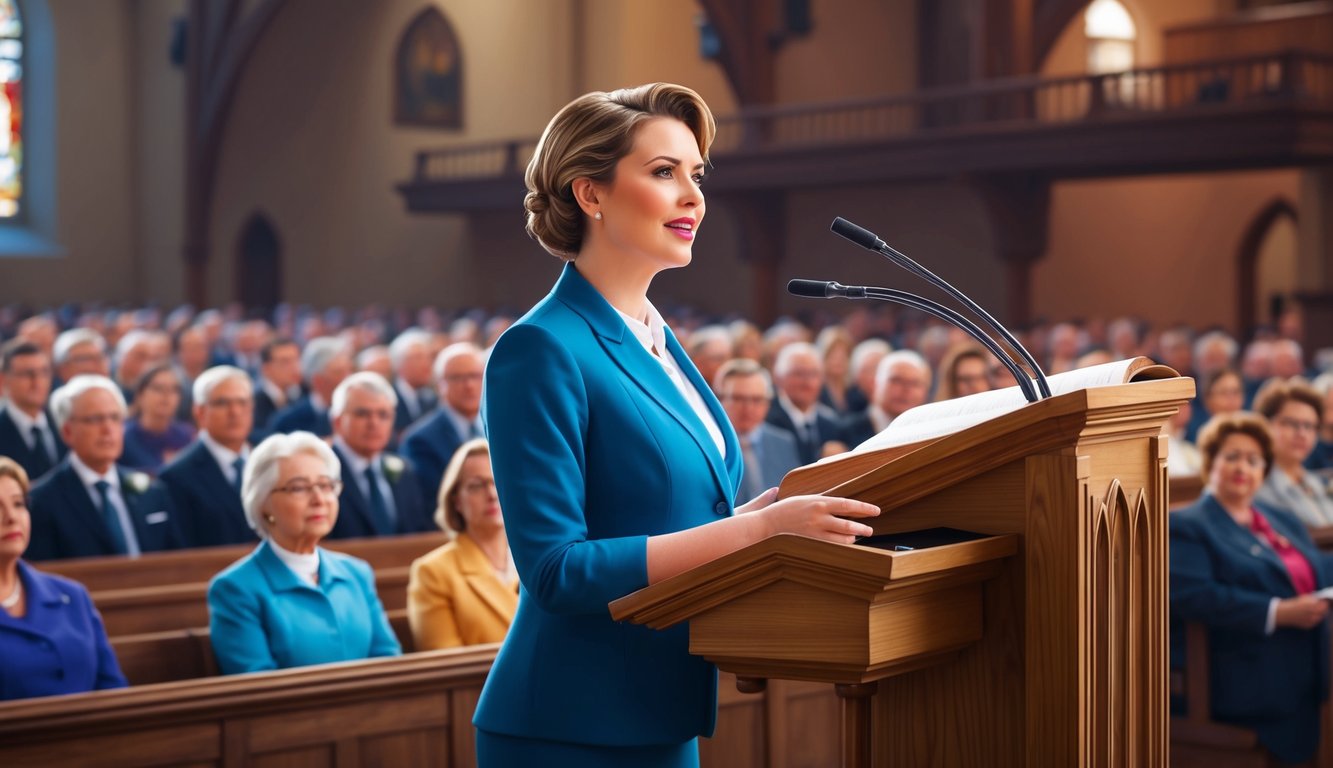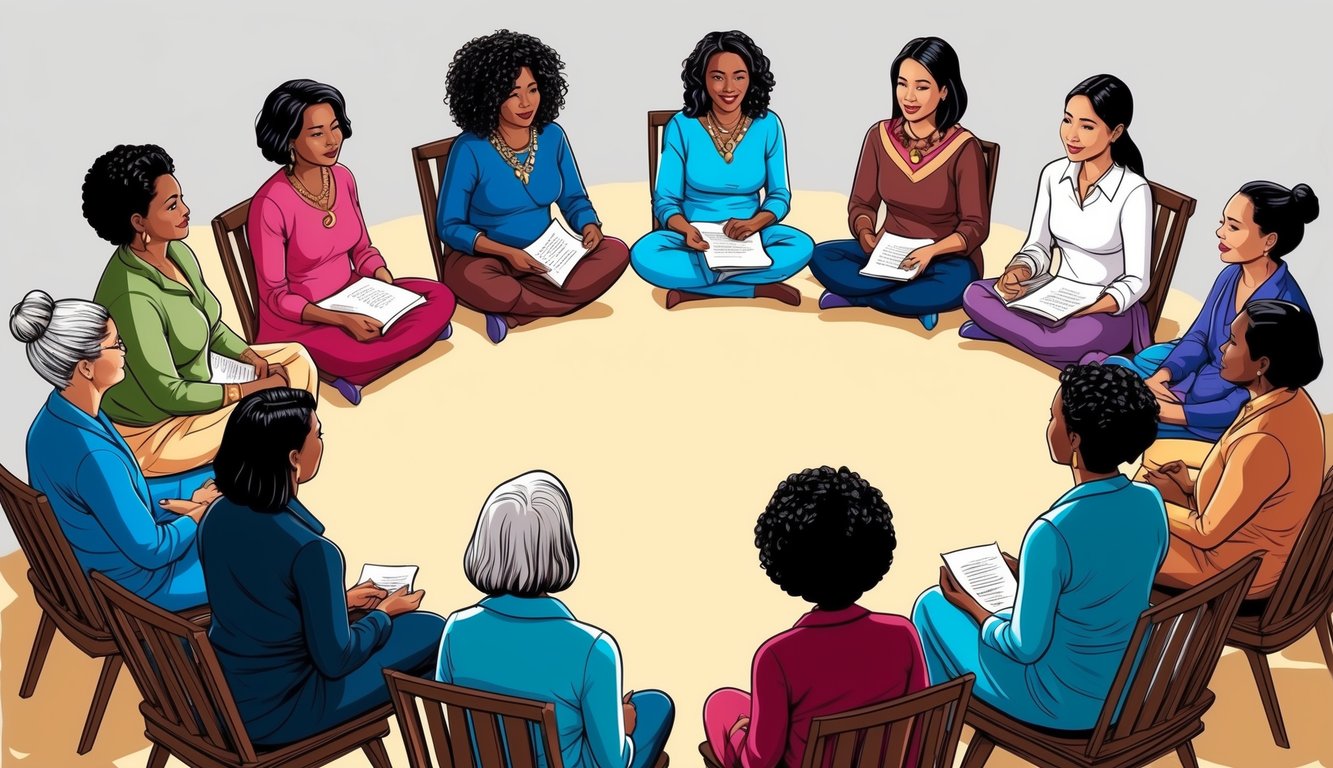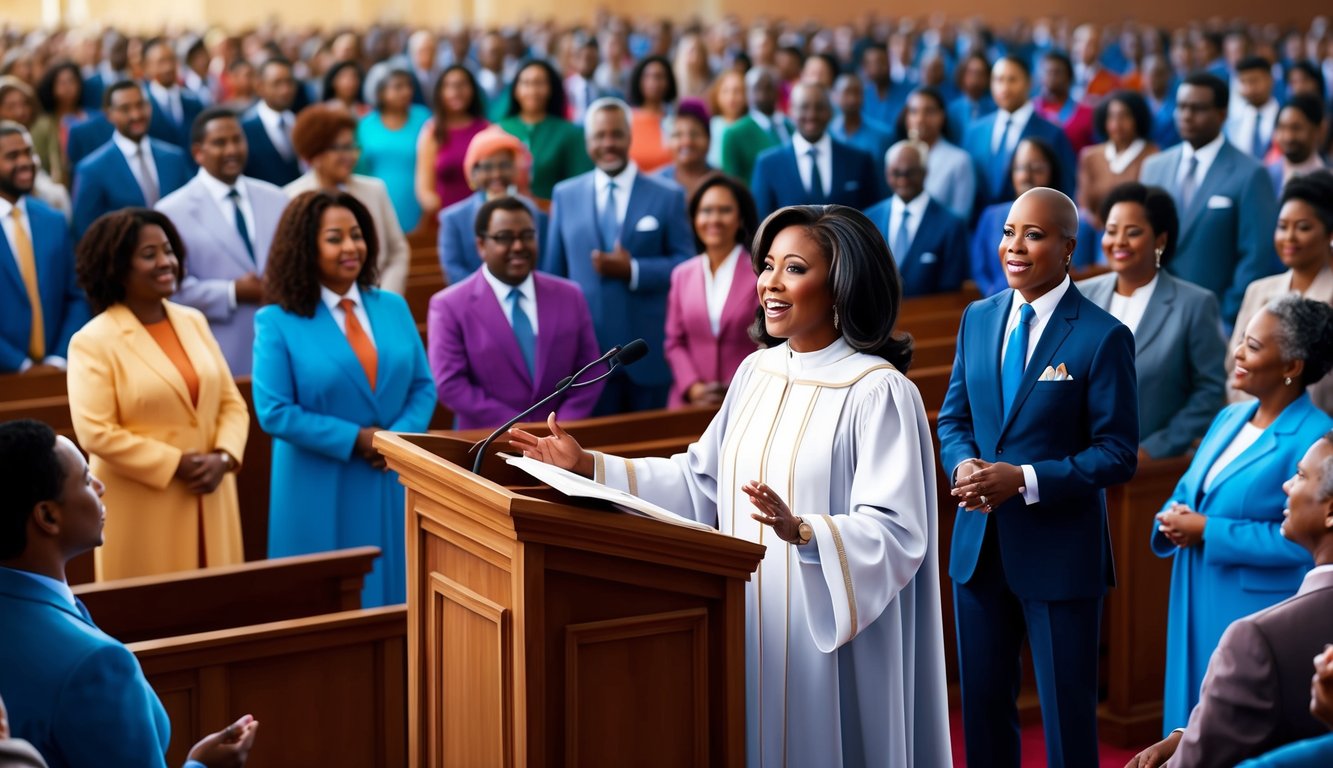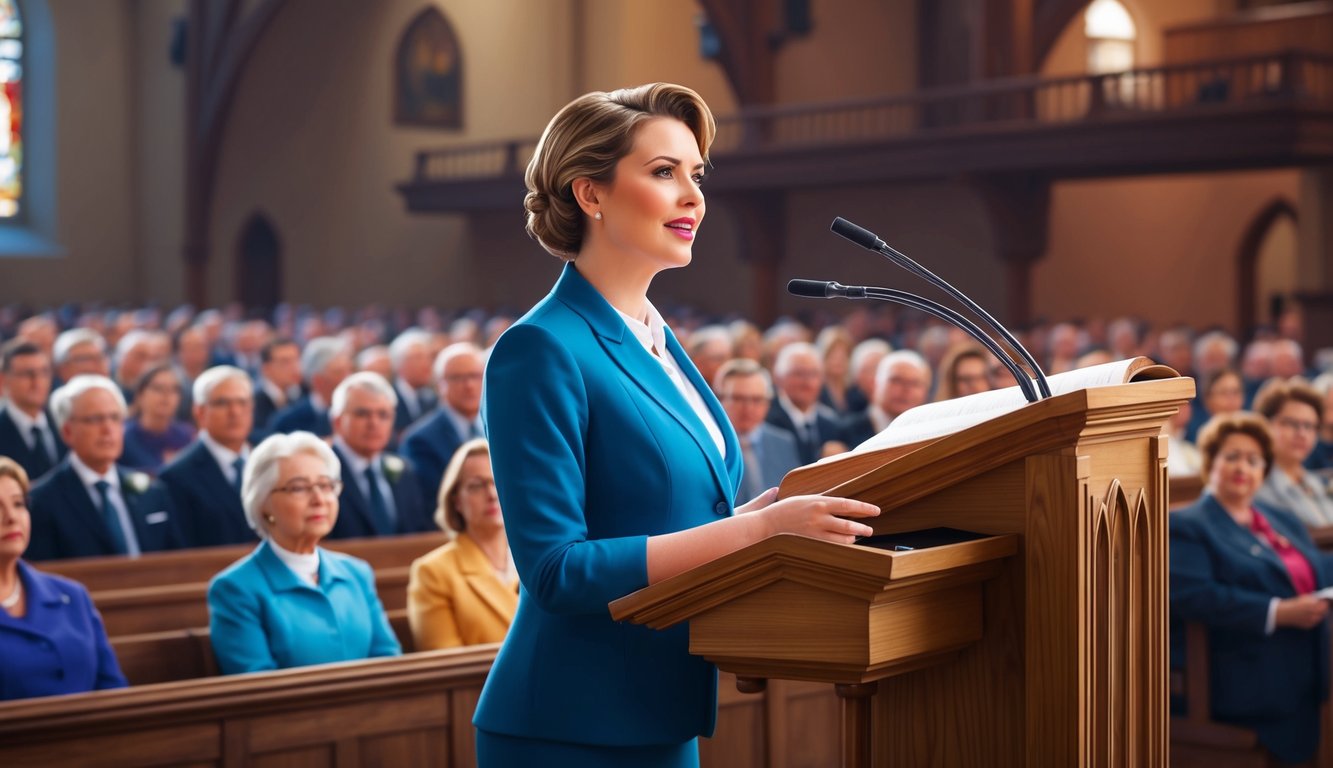Don’t Miss Out On This Unique Astrological Opportunity
Are you tired of spinning your wheels and getting nowhere? Simply put, you’re out of sync: you’re out of alignment with your astral configuration.
But: there’s a kind of map that can help you reclaim your alignment. Think of it as your own personal blueprint to success and happiness: a blueprint that will help you live your most amazing life.
Get started here.
Christians today raise many questions about women in pastoral roles.
Some argue that the Bible restricts women from being pastors.
However, many believe women can and do fulfill these important roles in the church.
Understanding the biblical foundations and the historical context can help shed light on this debate.

The role of women in the church has evolved over time, influenced by cultural and theological changes.
Many examples in scripture highlight women who led and taught others in faith.
As you explore this topic, you’ll find a variety of perspectives that can enrich your view of women in pastoral leadership.
Key Takeaways
- Women have held leadership roles in the church since biblical times.
- The debate continues around the interpretation of scripture concerning women pastors.
- Understanding different viewpoints can enhance your appreciation for women in ministry.
Biblical Foundations of Pastoral Leadership
In exploring the role of women in pastoral leadership, it’s important to examine both the Old and New Testament.
These texts provide various examples and teachings that contribute to the conversation.
Understanding specific women mentioned in scripture and the context of their leadership helps illustrate their significance in ministry.
Old Testament Examples and Precedents
The Old Testament features strong female leaders who played vital roles in Israel’s history. For example, Deborah was a judge and prophetess, providing guidance during a tumultuous time.
She led Israel to victory against their enemies, showcasing leadership qualities that were respected and sought after.
Huldah also held a prophetic role, advising King Josiah on the Book of the Law.
Her wisdom was recognized by the leaders of Israel.
These examples highlight that women were leaders in spiritual and societal contexts, setting a precedent for women’s involvement in ministry.
New Testament Teachings and Context
In the New Testament, Jesus included women in His ministry, showing their importance in the early church.
Mary, His mother, and others supported Him in crucial ways.
This inclusion plays a significant role in understanding the biblical foundation for women’s leadership.
The Apostle Paul, in his letters, often acknowledges women in ministry.
He refers to Priscilla as a teacher and leader alongside her husband, Aquila.
In 1 Timothy 2:12, Paul’s instruction about women teaches contextually, suggesting that his words were meant for specific situations.
Key Passages on Women in Ministry
Several key passages highlight the role of women in ministry. Galatians 3:28 emphasizes that all believers are equal in Christ, suggesting no gender barriers in service.
Romans 16 mentions Phoebe as a deacon, showing that women held official roles in the early church. 1 Corinthians 11 discusses women praying and prophesying in church settings, indicating an active participation in worship and ministry.
These scriptures together demonstrate that women have had a significant role in pastoral leadership, both historically and theologically.
The Role of Women in the Early Church

Women played vital roles in the early church, contributing to worship, ministry, and leadership.
Their involvement spans various activities, showcasing their importance in the Christian community.
Deaconesses and Leaders
Women such as Phoebe are noted for their roles as deaconesses in the early church.
Phoebe is mentioned in Romans 16:1-2 as a servant of the church in Cenchreae, highlighting her leadership position.
Other women, like Priscilla, were also influential leaders.
Together with her husband, she taught Apollos about the faith, showcasing her teaching authority.
These examples show that women were not only participants but also held significant roles in church governance and support.
Female Prophets and Teachers
Early Christian texts mention female prophets, emphasizing their spiritual authority and teaching roles.
For example, Miriam, the sister of Moses, is often recognized as a prophetess.
In the New Testament, women like Anna, who prophesied in the temple, highlight how women contributed significantly to the spiritual life of the community.
Additionally, Priscilla, along with her husband, guided others in understanding the faith.
Their involvement in teaching shows that women had a strong voice in spreading the message of Jesus.
Historical Testimonies and Records
Historical accounts confirm the active participation of women in the early church.
Egeria, a female pilgrim, documented her travels to holy sites in the 4th century, reflecting women’s interest in religious life.
Moreover, various writings, including those of early church fathers, mention women in leadership roles.
These accounts provide rich testimonies of how women were integral to worship, ministry, and the growth of the early church, validating their roles in religious settings.
Theological Debates on Women Pastors
The topic of women serving as pastors ignites strong discussions among theologians, church leaders, and congregations.
Key scriptures, traditions, and various denominational views shape how people interpret the role of women in ministry.
Interpretations of Key Scriptures
Many point to 1 Timothy 2:12, where Paul states that women should not teach or have authority over men.
This verse often fuels arguments against female pastors.
Critics argue it restricts women’s roles in spiritual leadership.
Yet, others highlight examples like Phoebe, who Paul commended as a leader in Romans 16:1-2.
Additionally, Priscilla, alongside her husband Aquila, is noted for her theological knowledge.
These references suggest that women did hold significant roles in the early church.
Different interpretations of scripture lead to diverse opinions on this issue.
Ordination and Church Tradition
Ordination is a significant focus in the debate on women pastors.
Traditionally, many conservative denominations do not permit women to serve as head pastors or elders.
They believe scripture supports male leadership in these roles.
In contrast, some denominations are open to ordaining women.
They argue that the Bible allows for female leadership based on gifts and calling.
Such views promote inclusivity and acknowledge women’s contributions in ministry.
Church tradition plays a vital role.
Some churches are evolving, allowing women to serve as associate pastors or in other supportive roles.
This shift reflects changing attitudes towards women’s abilities in spiritual leadership.
Denominational Perspectives
Different denominations approach female pastors in various ways.
Many conservative groups, like some Baptist or evangelical churches, strictly limit women’s roles, supporting only certain positions.
They refer to biblical passages to justify these views.
On the other hand, denominations like the United Methodist Church or Episcopal Church openly ordain women as pastors.
They emphasize equality and before God, believing everyone should have the chance to lead.
These differing perspectives highlight the ongoing theological debate.
Your understanding of these views can help you find a denomination that aligns with your beliefs about women in ministry.
Contemporary Issues and Considerations
As society changes, the conversation about women in pastoral roles evolves.
Various factors such as cultural influences, gender equality, and women’s involvement in leadership shape this ongoing discussion.
Cultural Influences and Changes
Cultural shifts have a significant effect on how people view women’s roles in the church.
In many Western countries, traditional views of authority in religious settings are challenged.
Key Points:
- Evolving Social Norms: More people now support women in leadership.
- Educational Opportunities: Greater access to education for women increases their qualifications for pastoral roles.
- Influence of Civil Authorities: Laws promoting gender equality influence church policies in the UK and EU.
These cultural changes encourage open discussions about women serving as pastors and address prior misconceptions.
Gender Equality and the Church
Gender equality within the church context is a pressing issue.
Many congregations are considering what equality means in practice.
Key Considerations:
- Scriptural Interpretations: Different interpretations of biblical texts lead to varied views on women’s roles.
- Support Systems: Women require strong support from both male and female leaders to thrive in ministry.
- Church Policies: Some denominations are updating their policies to reflect a commitment to equality.
This focus on gender equality is crucial as it shapes the future roles of women in the church.
Women’s Leadership Roles Beyond the Pulpit
Women are taking on various leadership roles within the church that extend beyond preaching.
Their contributions are vital to church life and community support.
Areas of Impact:
- Ministry Leadership: Women often lead ministries that focus on outreach, education, and family support.
- Administrative Roles: Women contribute significantly to church administration and decision-making.
- Mentorship and Training: Many women mentor younger leaders, helping cultivate future female pastors and educators.
These roles demonstrate that women’s leadership is essential, even if they do not occupy the pulpit.
Practical Aspects of Women in Pastoral Ministry

Women in pastoral roles can provide unique insights and valuable leadership within the church.
Focusing on their qualifications and the challenges they face helps shed light on their important contributions.
Qualifications and Training
To serve as a pastor, women need a solid education and training in theology.
Many pursue degrees in divinity or ministry, which cover important topics such as doctrine, biblical studies, and pastoral care.
These programs often include hands-on experience through internships or mentorship under experienced pastors.
Ordination serves as a key step for many women who seek to lead congregations.
Various denominations have specific requirements that might include additional assessments or community involvement. Support from church leaders and the congregation is crucial for women to succeed in these roles.
Challenges and Opportunities
Women in pastoral ministry face specific challenges, such as navigating traditional views on leadership.
Some may encounter skepticism regarding their ability to teach or lead, especially in more conservative settings.
This can create additional pressure to prove their leadership skills.
On the other hand, there are many opportunities as well.
Women pastors can connect with and address the needs of diverse church members.
They may mentor younger women and participate in community outreach.
Embracing these roles can enhance the church’s ability to engage with its members and the surrounding community effectively.
Their leadership can bring fresh perspectives to ministry, fostering a more inclusive and supportive environment for all.
Additionally, their presence may encourage discussions on important social issues, such as how many sanctuary cities provide refuge and support to vulnerable populations.
By actively engaging in these conversations, women pastors can help bridge gaps between faith and community needs.
Frequently Asked Questions
Many people wonder about the role of women in church leadership.
Questions often arise about what the Bible says, historical examples, and the current views of different denominations.
Here are answers to some common questions regarding female pastors.
What do Biblical texts say about female leadership in the church?
The Bible includes various passages on women in leadership.
Some interpretations suggest certain verses, like 1 Timothy 2:12, limit women’s roles as pastors, while others argue these texts focus on context rather than a complete ban.
Other verses, such as Deborah’s leadership in Judges, demonstrate women in significant roles.
Is there historical evidence for women serving as church leaders?
Yes, history shows women in leadership roles in many early church communities.
Notable figures like Phoebe, who is mentioned in Romans 16 as a deacon, and Priscilla, who taught Apollos in Acts 18, highlight women’s involvement in spreading the faith and guiding churches during the early years of Christianity.
What are some denominations’ stances on women in pastoral roles?
Denominations have varied views on women as pastors.
Some, like the United Methodist Church and the Episcopal Church, fully ordain women.
Others, including the Southern Baptist Convention, restrict pastoral roles to men.
These differences often reflect broader theological beliefs about church structure and gender roles.
How have women’s roles in church leadership evolved over time?
Throughout history, women have seen significant changes in their roles within church leadership.
In many communities, women who once had limited responsibilities now serve in various capacities, including senior pastors and elders.
The push for gender equality has influenced many congregations to rethink traditional views.
Are there notable examples of female pastors or preachers in church history?
Several female pastors and preachers have made important contributions to Christianity.
For instance, Jarena Lee became the first woman authorized to preach in the African Methodist Episcopal Church in the early 1800s.
Her work paved the way for future generations of women in ministry.
How do church congregations generally react to women pastors?
Reactions to women pastors differ widely among congregations.
Some embrace women leaders and offer strong support, while others may resist change.
The acceptance of women in pastoral roles often depends on the specific beliefs and traditions of each church community.



